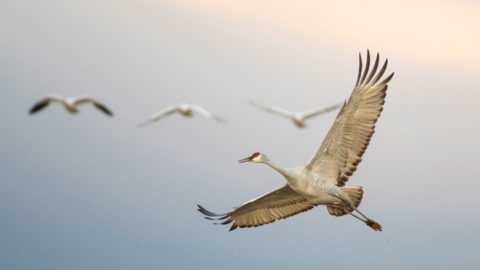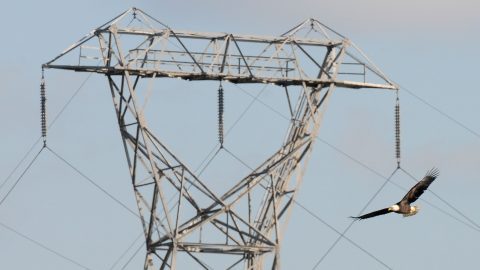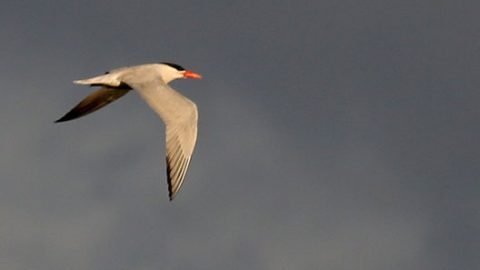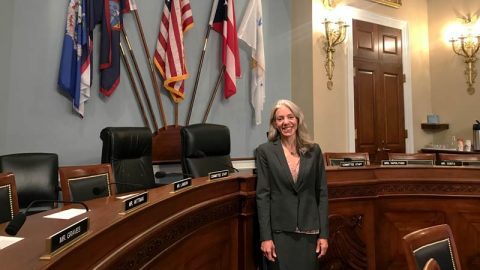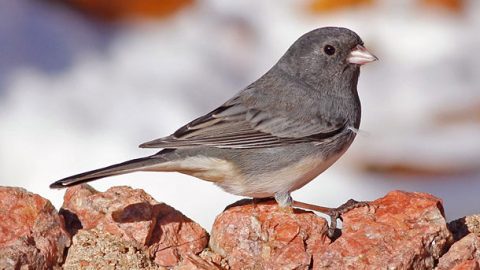Cornell Lab’s Public Comment on Migratory Bird Treaty Act Changes—Summary
July 15, 2020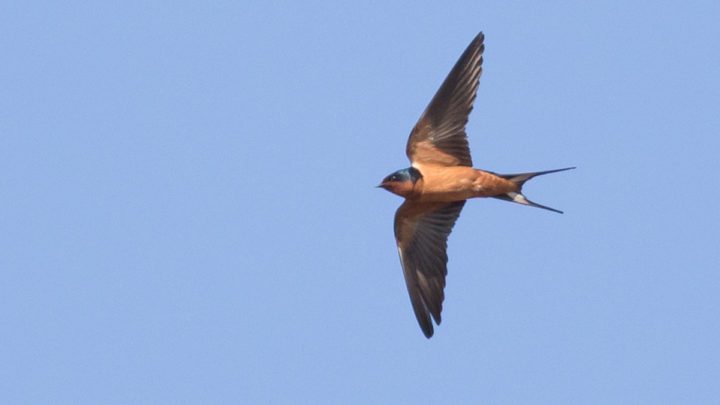

Update: In late September, 2021, the U.S. Department of the Interior formally restored the incidental-take rule under the Migratory Bird Treaty Act. Previously, a legal opinion issued by the Trump Administration in 2017 had proposed eliminating this rule, and went into effect in March 2020.
The U.S. Department of the Interior is in the final stages of codifying a new rule that excludes so-called incidental take from Migratory Bird Treaty Act protections. This new rule reverses longstanding federal policy that has held industry liable for negligent actions that resulted in preventable bird deaths, such as the 1 million birds killed in the Gulf of Mexico in the 2010 Deepwater Horizon oil spill.
Today Dr. Amanda Rodewald, Cornell University professor and scientist at the Cornell Lab of Ornithology, submitted a public comment to the U.S. Fish and Wildlife Service on the Draft EIS of this proposed new rule.
Dr. Rodewald says: “The Department of Interior and the U.S. Fish and Wildlife Service are legally mandated to conserve and protect migratory bird populations as best they can. Yet the proposed rule nullifies the agency’s authority in cases of incidental take and neuters the 102-year-old Migratory Bird Treaty Act in protecting against most sources of mortality for migratory birds.
“The agency claims it is taking this action to provide regulatory certainty for industry, yet in effect it is just pushing the incidental-take regulation to the states, where there will be a patchwork of regulations. The U.S. Fish and Wildlife Service’s proposed rule both undermines its organizational mission to protect birds and falls short of its stated aim to provide regulatory certainty for industry.”
More on the Migratory Bird Treaty Act
Following is a summary of the main points made by Dr. Rodewald. (Read the full text of the public comment.)
- The agency’s preferred action to exclude incidental take from MBTA regulation does not resolve issues of regulatory uncertainty for industry, because state laws regulating incidental take still apply. California has already enacted a law protecting migratory birds against incidental take. Eight states (including California) are currently involved in a lawsuit against the federal government over this issue of weakening the MBTA. It is likely some or all of those seven other states will follow California’s lead and enact their own state laws to protect birds against negligent industry actions. The USFWS admitted in its own Draft EIS that the outcome of their proposed rule could be replacing federal regulation with several layers of regulations among various states, writing “industries doing business across state lines may be faced with an increasingly complex, costly, and inconsistent regulatory environment.”
- The proposed rule will significantly reduce the voluntary implementation of industry best practices that reduce harm to birds. There are several cases in which industry has acted proactively to protect birds in order to avoid MBTA incidental-take prosecution, such as electrical utilities that took action to avoid bird electrocutions or energy companies that covered oil pits to stop bird deaths. In its Draft EIS, the USFWS admits there will be reduced adoption of these kinds of best practices and higher levels of bird mortality.
- The agency rushed to this drastic action of completely removing incidental take from the MBTA, without considering other alternatives to achieve their stated goal of regulatory certainty that would actually be effective. For example, historically electrical and energy companies accounted for 81% of the cases of incidental-take prosecutions under the Migratory Bird Treaty Act. Targeted permitting programs that focus on the industries posing the greatest threat to birds and emphasize best practices may provide the regulatory certainty the agency states it is seeking while also advancing the agency’s core mission to protect birds.
There is clearly a need for best practices in these industries to be continued. One year ago, the Cornell Lab and partners authored research published in the journal Science that showed North American bird populations have declined by 29% since 1970 (more than 1 in 4 birds lost). More than 80 of the 172 bird species reported to be killed in oil pits are in steep population decline, and more than 50 of the 350 species of Neotropical migratory songbirds are vulnerable to collisions with tall structures, such as electrical towers.
Dr. Rodewald’s comment included examples of declining bird species that will face greater threats to even higher mortality rates going forward, if industry best practices to avoid incidental take are discontinued:
- Eastern Meadowlark—3 in 4 lost since 1970; susceptible to higher risks from oil pits, collisions
- Golden-winged Warbler—3 in 5 lost; susceptible to higher risks from collisions
- Barn Swallow—2 in 5 lost; susceptible to higher risks from oil pits
Of the nearly 4 billion birds the USFWS estimates to be killed each year, industry alone kills up to 1.1 billion birds each year.
“The steep declines in avifauna point to the need to strengthen, rather than weaken, protections for migratory birds. Yet this proposed exclusion of incidental take from the Migratory Bird Treaty Act represents a significant weakening of bird protections,” wrote Dr. Rodewald in her public comment to the USFWS.
“The main argument in the Draft EIS for the preferred action is to reduce regulatory uncertainty and unnecessary burden on industry, but the authors admit that regulatory uncertainty will continue (or even be exacerbated) and that costs and liability could increase. At the same time, the preferred action runs directly counter to the MBTA’s main purpose and the USFWS mission.”
The public comment period is open through July 20, 2020. You can submit your own public comment here.


All About Birds is a free resource
Available for everyone,
funded by donors like you


